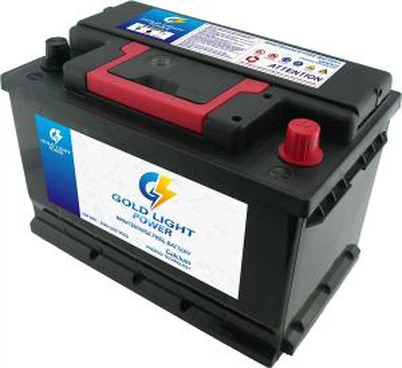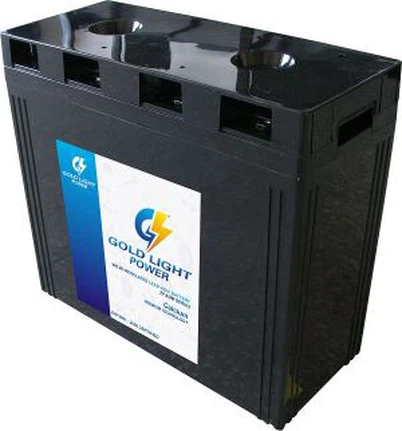What are the functions of the quality inspection department in the Agm factory?
Leave a message
Hey there! I'm a supplier for an AGM factory, and I've seen firsthand how crucial the quality inspection department is. So, I thought I'd share some insights on what functions this department serves in an AGM factory.


First off, let's talk about product quality control. The quality inspection department is like the gatekeeper of the factory. Their main job is to make sure that every AGM battery that comes out of the factory meets the required standards. This involves a series of tests and checks at different stages of the production process.
At the raw material stage, they inspect the incoming materials. For example, the lead plates, electrolytes, and separators. They check the purity of the lead, the density of the electrolytes, and the quality of the separators. If the raw materials don't meet the standards, they won't be used in the production. This is super important because the quality of the raw materials directly affects the performance and lifespan of the final product.
Once the production starts, the quality inspection team conducts in - process inspections. They monitor the assembly process to ensure that everything is done correctly. For instance, they check if the lead plates are properly stacked, if the electrolyte is filled to the right level, and if the battery cells are sealed tightly. Any mistakes or deviations during the assembly can lead to battery failures later on.
After the batteries are assembled, they go through a comprehensive final inspection. This includes electrical performance tests. They measure the voltage, capacity, and internal resistance of the batteries. For example, for a 2V800AH AGM, Gel Rechargeable Battery Deep Cycle Solar Power Battery, they need to ensure that it can deliver the specified capacity under the right conditions. They also test the battery's charging and discharging characteristics to make sure it can perform well in real - world applications.
Another important function of the quality inspection department is to ensure compliance with industry standards and regulations. The AGM battery industry is subject to various national and international standards. These standards cover aspects like safety, environmental protection, and performance. The quality inspection team has to make sure that the factory's products meet all these requirements.
For safety, they check for things like over - charge protection, short - circuit protection, and thermal management. They also test the battery's resistance to vibration and shock, as these are common factors in many battery applications. In terms of environmental protection, they ensure that the batteries are designed and manufactured in a way that minimizes pollution. For example, they check if the lead - acid batteries are properly sealed to prevent electrolyte leakage, which can be harmful to the environment.
The quality inspection department also plays a role in quality improvement. They collect data from all the inspections and tests. This data is then analyzed to identify any recurring problems or areas for improvement. For example, if they notice that a certain batch of batteries has a higher than normal failure rate during the final inspection, they'll dig deeper to find out the root cause. Maybe it's a problem with a particular production machine or a change in the raw material supplier.
Based on the analysis, they can work with other departments in the factory, such as the production and R & D departments, to come up with solutions. They might suggest changes to the production process, new quality control measures, or improvements to the product design. This continuous improvement process helps the factory to produce better - quality batteries over time.
In addition to internal quality control, the quality inspection department also interacts with customers. When customers have complaints about the batteries, the quality inspection team is responsible for investigating the issues. They'll take samples of the problematic batteries and conduct detailed tests to determine the cause of the problem.
If the problem is due to a manufacturing defect, they'll work with the customer to resolve the issue. This could involve providing replacement batteries, offering technical support, or compensating the customer for any losses. By handling customer complaints effectively, the quality inspection department helps to maintain the factory's reputation and customer satisfaction.
Now, let's talk about the relationship between the quality inspection department and us suppliers. As a supplier, we rely on the feedback from the quality inspection team. They let us know if there are any issues with the materials we supply. If they find that a batch of lead plates has a lower purity than required, they'll inform us right away. This feedback is crucial for us because it allows us to take corrective actions.
We can then work on improving our production processes to ensure that the materials we supply in the future meet the factory's standards. In some cases, the quality inspection department might even provide us with technical guidance on how to improve the quality of our products. This collaborative relationship between the factory's quality inspection department and suppliers is essential for maintaining the overall quality of the AGM batteries.
When it comes to new product development, the quality inspection department is also involved from the beginning. They work with the R & D team to define the quality requirements for the new products. For example, when the factory is developing a new 2V600AH AGM Rechargeable Power Battery Valve Regulated Lead Aicd Battery for Long Life Battery, the quality inspection team will help to set the performance targets, safety standards, and quality control points.
During the development process, they conduct prototype inspections. They test the new battery designs to see if they meet the defined requirements. If there are any problems, they'll provide feedback to the R & D team, who can then make the necessary adjustments. This early involvement of the quality inspection department helps to ensure that the new products are of high quality when they are finally launched into the market.
In conclusion, the quality inspection department in an AGM factory has a wide range of functions. From raw material inspection to final product testing, from ensuring compliance with standards to driving quality improvement, and from handling customer complaints to collaborating with suppliers and R & D, they are an integral part of the factory's success.
If you're interested in high - quality AGM batteries and want to discuss potential procurement opportunities, don't hesitate to reach out. We're always open to new partnerships and are committed to providing the best products and services.
References
- Battery Industry Handbook
- Industry Standards for AGM Batteries





